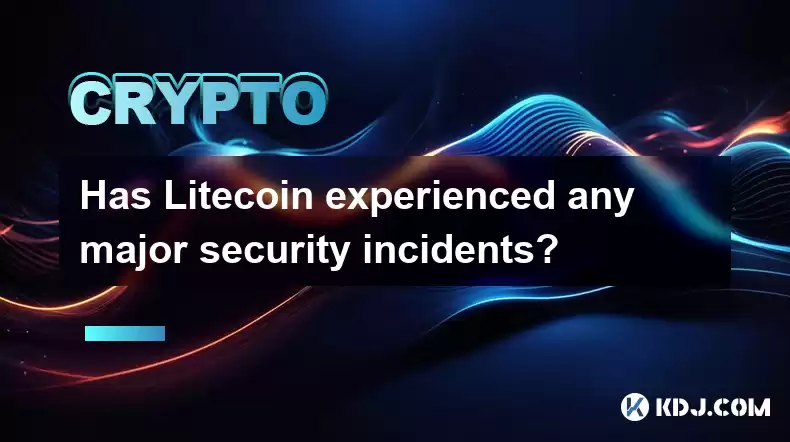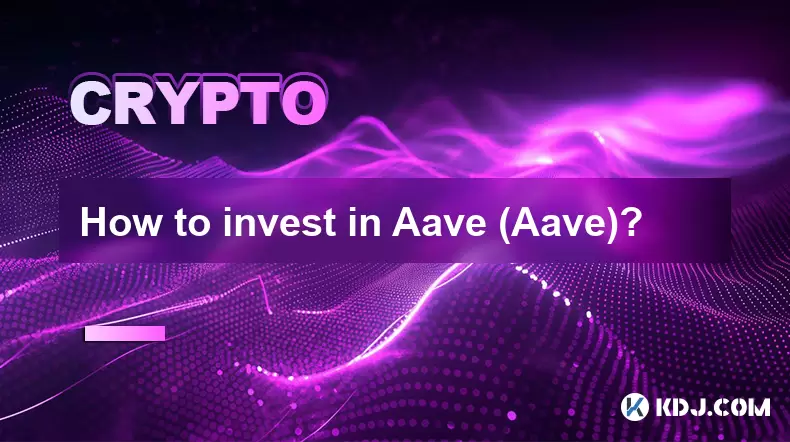-
 Bitcoin
Bitcoin $117300
1.99% -
 Ethereum
Ethereum $3884
5.89% -
 XRP
XRP $3.268
9.33% -
 Tether USDt
Tether USDt $1.000
0.02% -
 BNB
BNB $783.0
1.78% -
 Solana
Solana $173.6
3.51% -
 USDC
USDC $0.9999
0.00% -
 Dogecoin
Dogecoin $0.2193
7.00% -
 TRON
TRON $0.3380
0.30% -
 Cardano
Cardano $0.7769
5.08% -
 Stellar
Stellar $0.4350
9.36% -
 Hyperliquid
Hyperliquid $40.23
5.78% -
 Sui
Sui $3.739
6.95% -
 Chainlink
Chainlink $18.30
9.46% -
 Bitcoin Cash
Bitcoin Cash $581.7
2.11% -
 Hedera
Hedera $0.2577
5.51% -
 Ethena USDe
Ethena USDe $1.001
0.00% -
 Avalanche
Avalanche $23.08
4.23% -
 Litecoin
Litecoin $121.7
2.24% -
 UNUS SED LEO
UNUS SED LEO $8.962
-0.34% -
 Toncoin
Toncoin $3.332
1.36% -
 Shiba Inu
Shiba Inu $0.00001273
3.39% -
 Uniswap
Uniswap $10.35
6.84% -
 Polkadot
Polkadot $3.818
4.01% -
 Dai
Dai $1.000
0.01% -
 Bitget Token
Bitget Token $4.446
2.13% -
 Cronos
Cronos $0.1491
4.96% -
 Monero
Monero $255.4
-9.78% -
 Pepe
Pepe $0.00001099
4.80% -
 Aave
Aave $284.0
8.01%
Has Litecoin experienced any major security incidents?
Despite past security incidents, Litecoin's strong blockchain technology and robust security measures, such as Litecoin Core updates, Segregated Witness, and atomic swaps, have preserved its reputation for security.
Feb 16, 2025 at 06:06 am

Litecoin Security: Understanding Past Incidents and Enhancing Future Protection
Litecoin (LTC), a prominent cryptocurrency, has maintained a strong reputation for security over the years. However, like any digital asset, it has not been immune to security incidents and potential vulnerabilities. Understanding these incidents and the steps taken to address them is crucial for investors and users to make informed decisions.
Key Points:
- Overview of past security incidents involving Litecoin
- Analysis of the causes and vulnerabilities that led to the incidents
- Comprehensive examination of the security measures implemented to enhance Litecoin's protection
- Discussion of best practices for secure Litecoin storage and management
- Exploration of future security challenges and ongoing efforts to mitigate risks
Past Security Incidents Involving Litecoin
1. Cryptsy Exchange Hack (2014):
- In 2014, Cryptsy, a cryptocurrency exchange, experienced a significant hack that resulted in the theft of over 13,000 LTC.
- The incident highlighted vulnerabilities in the exchange's security measures, particularly around internal access controls and password management.
2. Bitfinex Exchange Hack (2016):
- In 2016, Bitfinex, another major cryptocurrency exchange, suffered a hack that led to the loss of approximately 119,756 LTC.
- The attack exploited a flaw in the exchange's multi-signature system, allowing hackers to withdraw funds without the required authorization.
Analysis of Causes and Vulnerabilities
1. Weak Exchange Security:
- Many of the security incidents involving Litecoin have occurred on cryptocurrency exchanges, emphasizing the importance of robust security measures for these platforms.
- Insufficient internal controls, inadequate password management, and outdated software can increase the risk of breaches.
2. Exploits and Vulnerabilities:
- Litecoin's security has also been challenged by exploits and vulnerabilities in its underlying technology.
- Flaws in the blockchain protocol or specific software implementations can create opportunities for hackers to compromise the network.
Security Measures Implemented by Litecoin
1. Litecoin Core Updates:
- The Litecoin Core development team has continually released updates to the software that powers the Litecoin network.
- These updates often include security enhancements, addressing vulnerabilities and strengthening the blockchain's integrity.
2. Segregated Witness (SegWit):
- Litecoin adopted the Segregated Witness (SegWit) upgrade in 2017, which improves transaction efficiency and security.
- SegWit addresses the malleability issue that made it possible for attackers to manipulate transaction data.
3. Atomic Swaps:
- Litecoin has implemented atomic swaps, a secure method for exchanging cryptocurrencies directly between users without the need for an intermediary exchange.
- Atomic swaps reduce the risk associated with exchange hacks and unauthorized access to funds.
Best Practices for Secure Litecoin Storage and Management
1. Hardware Wallets:
- Storing Litecoin in a hardware wallet, a physical device designed for cryptocurrency storage, provides an additional layer of security.
- Hardware wallets keep private keys offline, reducing the chances of compromise.
2. Multi-Factor Authentication:
- Enabling multi-factor authentication (MFA) for cryptocurrency exchanges and wallets helps protect accounts from unauthorized access.
- MFA requires multiple forms of identification, such as a password, email verification, or biometric confirmation.
3. Secure Backup:
- Regular backups of Litecoin wallets ensure that funds can be recovered in case of device loss or failure.
- Storing backups in multiple secure locations, such as a USB drive and a cloud storage service, is advisable.
Future Security Challenges and Ongoing Efforts
1. Quantum Computing:
- The emergence of quantum computing poses potential risks to cryptocurrency security.
- Quantum algorithms could break the cryptographic algorithms used by Litecoin and other cryptocurrencies.
2. Social Engineering Attacks:
- Social engineering attacks, where hackers manipulate users into revealing sensitive information, remain a threat to Litecoin users.
- Phishing scams and social media impersonation are common methods used by attackers.
FAQs:
1. Is Litecoin a safe investment?
Litecoin has a strong reputation for security due to its robust blockchain technology and the security measures implemented over the years. However, investing in any cryptocurrency carries inherent risks, and it is crucial to conduct thorough research and practice due diligence before making investment decisions.
2. How can I protect my Litecoin from theft?
Using hardware wallets, enabling multi-factor authentication, and practicing secure backup protocols are effective measures to protect Litecoin from theft. Avoiding phishing scams and being cautious of unfamiliar websites and requests can also help mitigate the risks of social engineering attacks.
3. What is the future of Litecoin security?
Litecoin's security continues to evolve as the development team addresses emerging threats and vulnerabilities. Ongoing efforts focus on quantum computing resistance, enhancing the blockchain's security, and educating users on best security practices.
Disclaimer:info@kdj.com
The information provided is not trading advice. kdj.com does not assume any responsibility for any investments made based on the information provided in this article. Cryptocurrencies are highly volatile and it is highly recommended that you invest with caution after thorough research!
If you believe that the content used on this website infringes your copyright, please contact us immediately (info@kdj.com) and we will delete it promptly.
- Cold Wallet Crypto in 2025: The Future is Now, Ya'll
- 2025-08-08 05:10:13
- MAGACOIN, SOL, and ADA: A Tale of Shifting Tides in Crypto
- 2025-08-08 05:10:13
- SHIB Price, PEPE, and the Memecoin Supercycle: Who Will Reign Supreme?
- 2025-08-08 05:50:12
- Pudgy Penguins Price Prediction: Google Trends & Breakout Signals
- 2025-08-08 05:50:12
- UAE Crypto Regulation: SCA and VARA Unite to Streamline the Future of Digital Assets
- 2025-08-08 05:55:48
- MAGACOIN Finance: The Presale Phenomenon Rocking the Crypto World
- 2025-08-08 05:55:48
Related knowledge

Where can I buy UMA (UMA)?
Aug 07,2025 at 06:42pm
Understanding UMA and Its Role in Decentralized FinanceUMA (Universal Market Access) is an Ethereum-based decentralized finance (DeFi) protocol design...

What exchanges support buying IOTA (MIOTA)?
Aug 07,2025 at 09:58pm
Understanding the Role of Private Keys in Cryptocurrency SecurityIn the world of cryptocurrency, private keys are the cornerstone of ownership and con...

How to acquire Holo (HOT) tokens?
Aug 08,2025 at 05:56am
Understanding Holo (HOT) and Its EcosystemHolo (HOT) is a cryptocurrency token associated with the Holo ecosystem, which is built on the Holochain fra...

What is the best app to buy EOS?
Aug 07,2025 at 04:35pm
Understanding EOS and Its Role in the Cryptocurrency EcosystemEOS is a blockchain platform designed to support decentralized applications (dApps) with...

What platforms support buying Fantom (FTM)?
Aug 08,2025 at 01:56am
Overview of Fantom (FTM) and Its EcosystemFantom (FTM) is a high-performance, scalable, and secure layer-1 blockchain designed to overcome the limitat...

How to invest in Aave (Aave)?
Aug 08,2025 at 01:07am
Understanding Aave (AAVE) and Its Role in DeFiAave is a decentralized finance (DeFi) protocol that enables users to lend, borrow, and earn interest on...

Where can I buy UMA (UMA)?
Aug 07,2025 at 06:42pm
Understanding UMA and Its Role in Decentralized FinanceUMA (Universal Market Access) is an Ethereum-based decentralized finance (DeFi) protocol design...

What exchanges support buying IOTA (MIOTA)?
Aug 07,2025 at 09:58pm
Understanding the Role of Private Keys in Cryptocurrency SecurityIn the world of cryptocurrency, private keys are the cornerstone of ownership and con...

How to acquire Holo (HOT) tokens?
Aug 08,2025 at 05:56am
Understanding Holo (HOT) and Its EcosystemHolo (HOT) is a cryptocurrency token associated with the Holo ecosystem, which is built on the Holochain fra...

What is the best app to buy EOS?
Aug 07,2025 at 04:35pm
Understanding EOS and Its Role in the Cryptocurrency EcosystemEOS is a blockchain platform designed to support decentralized applications (dApps) with...

What platforms support buying Fantom (FTM)?
Aug 08,2025 at 01:56am
Overview of Fantom (FTM) and Its EcosystemFantom (FTM) is a high-performance, scalable, and secure layer-1 blockchain designed to overcome the limitat...

How to invest in Aave (Aave)?
Aug 08,2025 at 01:07am
Understanding Aave (AAVE) and Its Role in DeFiAave is a decentralized finance (DeFi) protocol that enables users to lend, borrow, and earn interest on...
See all articles

























































































